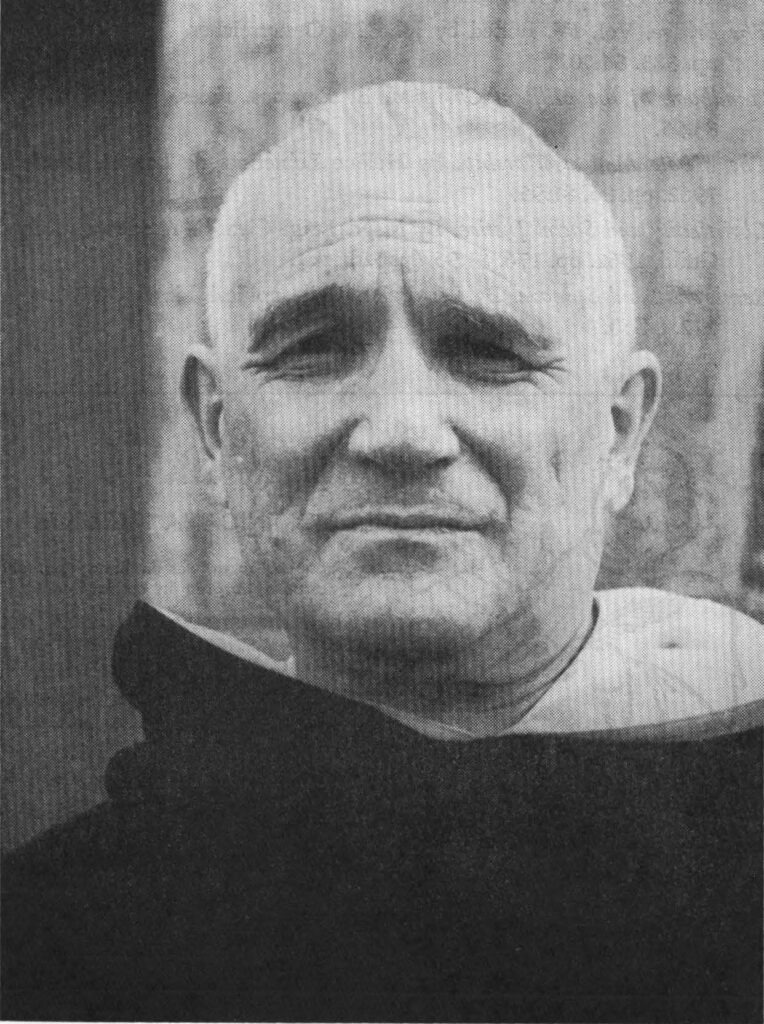
Padre Aniceto Fernández Alonso, O.P. taught philosophy at the Angelicum from 1932 to 1950 before entering into service in the governance of the Dominican Order, first as a Socius to the Master, then Provincial of the Province of Spain, and finally as the Master of the Order, in 1962. His contemporaries noted his diligence in prayers, his devotion to religious life and to the Order, and his zeal for the work of missionaries. Along with all of these traits, he was known as a friar of great studiousness, and a great proponent of the work of St. Thomas Aquinas in dialogue with the contemporary world. In fact the most common theme of his philosophical writings was on the relationship between modern science and philosophy. While we have only just begun to rediscover with the breadth of P. Fernandez’s work, the Thomistic Institute Project on Faith and Science would like to draw attention to it, in order to better understand the role the Angelicum has played, historically, in Thomistic engagement with science.
P. Fernandez did his initial studies in philosophy at the Dominican school in Corias and in theology at the priory of San Esteban in Salamanca where he earned a Lectorate in Theology. After ordination he was sent to Madrid where he studied in the Faculty of Science of the Universidad Autónoma de Madrid, earning a Licentiate in Physical Sciences. After this, in 1926, he was named professor of Sciences and Natural Philosophy at Corias where he taught for six years. In 1932, he was named professor of Physical Sciences and Cosmology at the Angelicum in Rome, where he taught Philosophy for the next eighteen years. In 1941 he earned the highest academic rank in the Order, the Master of Sacred Theology.
While at the Angelicum, P. Fernandez taught a range of courses in the philosophy of nature and the relationship between modern science and philosophy. At a time when many Neo-Scholastic philosophers were arguing that philosophy of nature, coming out of the Aristotelian tradition, and modern science were formally distinct endeavors, studying different things and working independent of one another, Fernández took a different view. He argued, drawing inspiration from Aristotle, Aquinas, and St. Albert, that “the method of investigation of the natural philosopher and the method of investigation of the scientists are not opposed ways which have only common experience as a beginning in common, but are two parts of the same method, of which the first should be pursued by the scientist and the other by the philosopher.”
While he never wavered from his commitment to Thomistic principles of hylomorphism, causation, and knowledge, P. Fernandez felt that these principles should be discussed and argued for in light of contemporary science. Drawing on the insights of contemporary science presents challenges for these seemingly ancient principles, but new insights can provide a more sure footing for these classic principles if properly understood. While he provided many theoretical arguments from Aristotelian and Thomistic principles for this position, he also exemplified it in his teaching, giving courses on: space, time and relativity; energy, entropy, and the eternity of the world; philosophical questions from chemistry; and philosophical questions from quantum mechanics.
References:
Lebrato, Jaime R., O.P., ed. Padre Aniceto Fernández : recuerdos y testimonios. Roma, 1981.
Fernandez-Alonso, Aniceto, O.P. “Scientiae et Philosophia Secundum S. Albertum Magnum,” Angelicum, XIII (1936), n. 1, 24-59.
